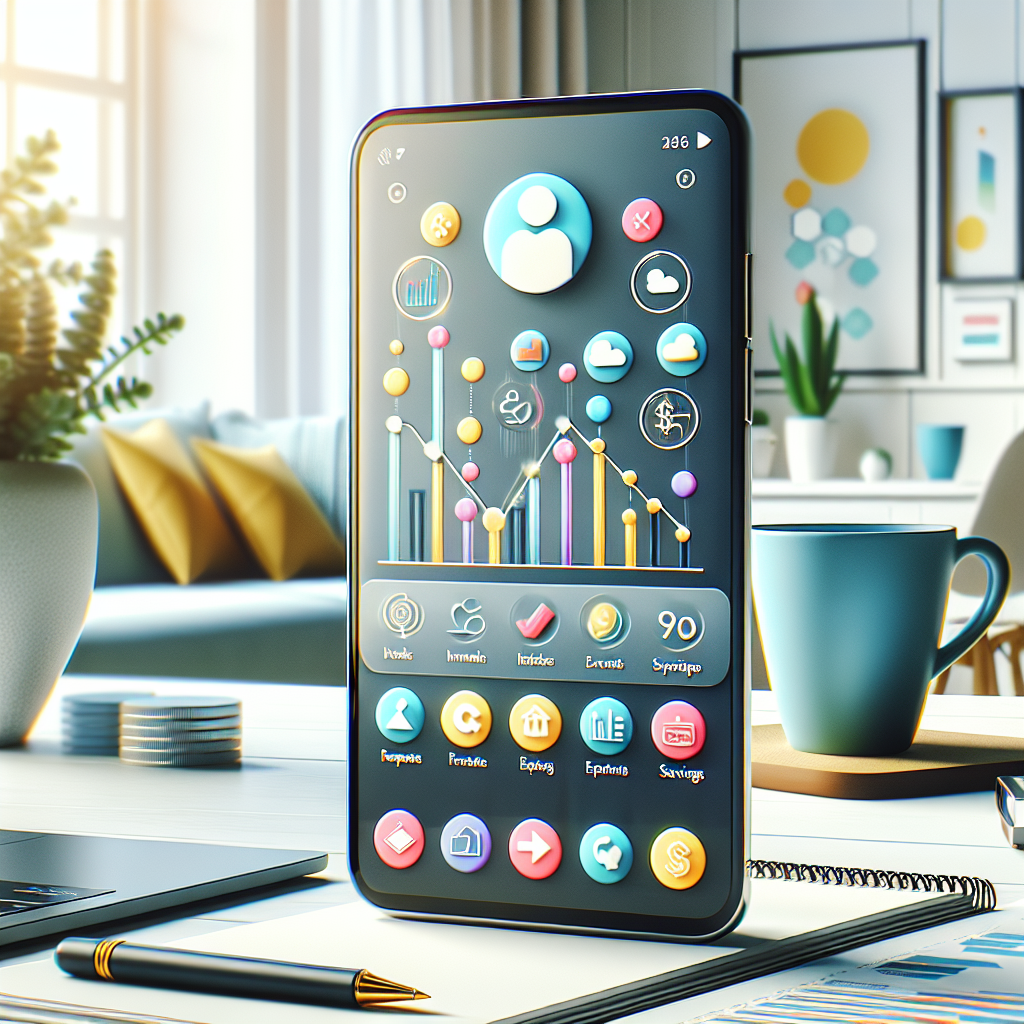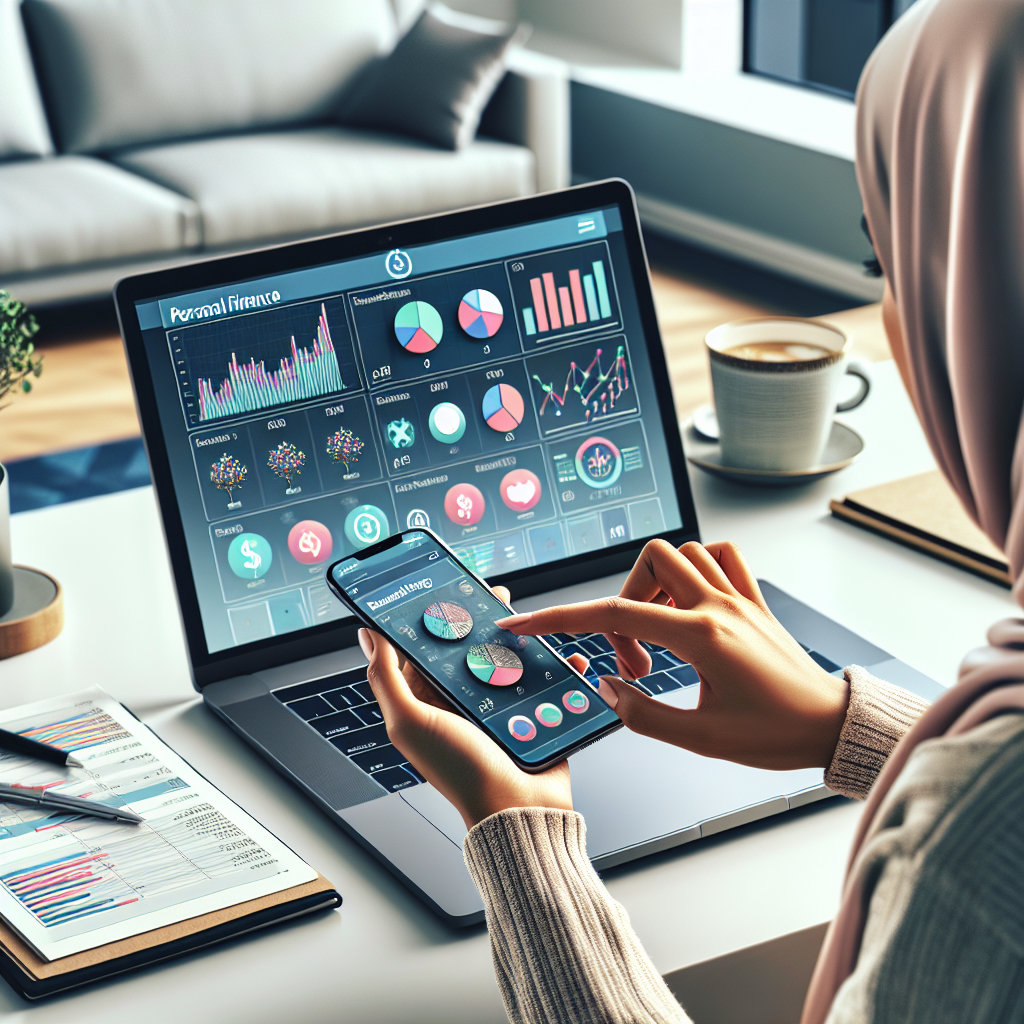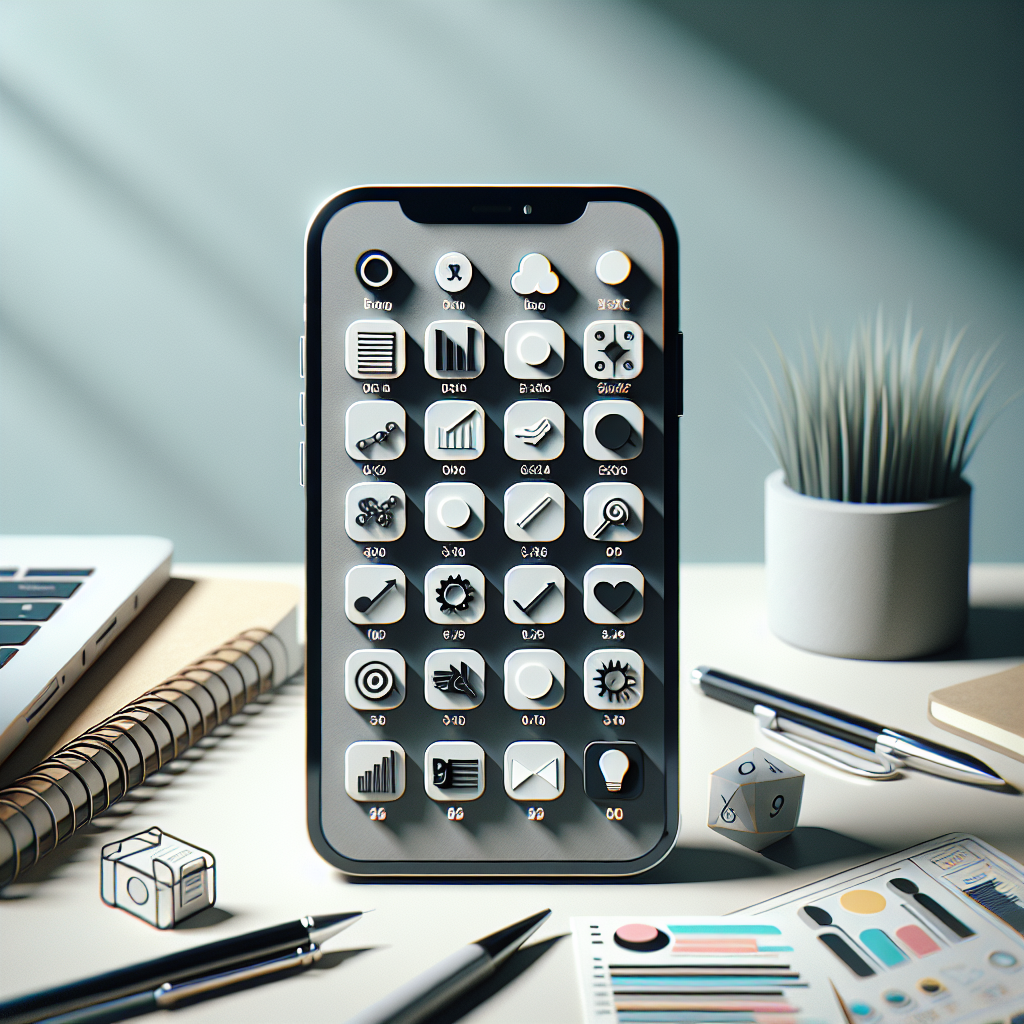Managing personal finances has never been easier, thanks to the advent of the best budgeting apps. These innovative tools have revolutionized how we handle our money, making it possible to track expenses, set savings goals, and monitor investments all from the convenience of our smartphones. Whether you’re an individual looking to gain better control over your spending or a small business aiming to streamline financial operations, these apps offer a plethora of features designed to simplify the financial management process.
The best budgeting apps and personal finance apps provide users with detailed insights into their financial habits, helping them identify areas where they can cut costs and save more efficiently. By offering personalized solutions, these apps cater to the unique needs of each user, ensuring that everyone can find a tool that suits their specific financial goals. Transparency, reliability, and user-friendliness are at the core of these applications, making them indispensable tools in today’s financial toolkit.
Ready to take control of your finances and experience effortless savings? Download Vala today and start managing your budget with ease!
Key Features Of the best budgeting Apps

The best budgeting apps and personal finance apps come equipped with a variety of features designed to help users manage their finances more effectively. Here are some key features to look for when selecting a finance app:
- Expense Tracking: One of the most critical features, expense tracking allows users to record and categorize their spending. This helps in identifying spending patterns and areas where one can cut back.
- Budgeting Tools: Effective budgeting tools help users set financial goals, create budgets, and stick to them. These tools often come with alerts and reminders to keep you on track.
- Savings Goals: Many apps offer the ability to set and track savings goals. Whether you’re saving for a vacation, a new car, or an emergency fund, these tools help you stay focused and motivated.
- Bill Reminders: Forgetting to pay bills can lead to late fees and affect your credit score. Top finance apps provide bill reminders to ensure you never miss a payment.
- Investment Tracking: For those interested in growing their wealth, investment tracking features provide insights into your portfolio’s performance and help in making informed decisions.
- Financial Insights and Reports: Comprehensive financial reports and insights give users a clear picture of their financial health, making it easier to make informed decisions.
- Security: Given the sensitive nature of financial data, top apps prioritize security with features like encryption, two-factor authentication, and secure login.
These features collectively make budgeting and personal finance apps invaluable tools for managing your money efficiently. By leveraging these functionalities, users can take proactive steps towards achieving their financial goals.
Benefits Of Using Budgeting Apps
Utilizing the best budgeting apps and personal finance apps offers numerous advantages that can transform the way you handle your finances. Here are some of the key benefits:
- Improved Financial Awareness: Budgeting apps provide real-time insights into your spending and saving habits. This heightened awareness can help you identify areas where you might be overspending and make more informed financial decisions.
- Convenience: With these apps, you can manage your finances anytime, anywhere. Whether you’re at home, at work, or on the go, having your financial information at your fingertips makes it easier to stay on top of your budget.
- Goal Setting: Budgeting apps enable you to set and track financial goals, whether it’s saving for a vacation, paying off debt, or building an emergency fund. Visualizing your progress towards these goals can be highly motivating.
- Expense Categorization: These apps often come with features that automatically categorize your expenses, making it simpler to see where your money is going. This categorization can help you adjust your spending habits for better financial health.
- Bill Management: Many budgeting apps offer bill tracking and reminders, ensuring that you never miss a payment. This can help you avoid late fees and maintain a good credit score.
- Reduced Financial Stress: Knowing that all your financial information is organized and easily accessible can significantly reduce financial stress. This peace of mind allows you to focus on other important aspects of your life.
- Enhanced Savings: By providing a clear picture of your financial situation, these apps can help you find ways to save more effectively. Whether it’s cutting down on unnecessary expenses or finding better interest rates, budgeting apps can boost your savings.
In summary, the benefits of using budgeting apps extend far beyond simple expense tracking. They offer a comprehensive approach to financial management, empowering users to take control of their finances and achieve their monetary goals with confidence.
Comparison Of Popular Budgeting Tools

With a multitude of budgeting tools available, it can be challenging to decide which one best suits your needs. Here, we compare some of the most popular budgeting and personal finance apps to help you make an informed choice:
- Mint: Mint is a widely-used budgeting tool known for its comprehensive financial tracking capabilities. It offers features such as automatic expense categorization, bill reminders, and credit score monitoring. Pros:Free to use, integrates with multiple financial accounts. Cons: Contains ads, limited customization options.
- You Need a Budget (YNAB): YNAB focuses on a proactive approach to budgeting. It encourages users to allocate every dollar to a specific purpose. Pros: Emphasizes saving and debt reduction, strong educational resources. Cons: Subscription-based, may have a learning curve for new users.
- Personal Capital: Personal Capital combines budgeting with investment tracking, making it ideal for those who want to manage both everyday expenses and long-term investments. Pros: Comprehensive financial overview, robust investment tools. Cons: Higher emphasis on investments, premium advisory services can be expensive.
- Goodbudget: Goodbudget uses an envelope budgeting system, which can be particularly effective for those who prefer a straightforward approach. Pros: Simple to use, great for couples and shared budgeting. Cons: Limited features in the free version, manual transaction entry required.
- PocketGuard: PocketGuard aims to simplify budgeting by showing you how much disposable income you have after accounting for bills, goals, and necessities. Pros: User-friendly interface, automatic categorization. Cons: Limited customization, some features require a premium subscription.
Each of these tools has unique strengths and potential drawbacks. Your choice will depend on your specific financial goals, preferences, and how you plan to use the app. Whether you need robust investment tracking or a simple, straightforward budgeting tool, understanding the features and limitations of each will help you select the best option for managing your finances effectively.
How To Choose The Right Finance App

Choosing the right finance app can be a game-changer in managing your personal finances effectively. Here are some key factors to consider when selecting the best budgeting and personal finance app for your needs:
- Identify Your Financial Goals: Determine what you aim to achieve with the app. Are you looking for a simple way to track expenses, or do you need a comprehensive tool that includes investment tracking and retirement planning? Identifying your goals will help narrow down your options.
- Evaluate Features: Different apps offer various features. Some focus on basic budgeting and expense tracking, while others provide advanced tools like investment analysis, bill reminders, and credit score monitoring. Make a list of must-have features and compare them across different apps.
- Ease of Use: An app should be intuitive and easy to navigate. Look for an interface that you find user-friendly. Many apps offer free trials or demos, which can give you a feel for their usability before you commit.
- Security: Since you’ll be linking your financial accounts, security is paramount. Ensure the app uses robust encryption methods and has a good reputation for safeguarding user data.
- Integration with Financial Institutions: Check if the app can seamlessly integrate with your bank and other financial accounts. This feature can save you time by automatically importing transactions.
- Cost: While some apps are free, others require a subscription. Weigh the cost against the features offered to determine if the app provides good value for your money. Sometimes, a small investment in a subscription can offer immense value in terms of features and support.
- Customer Support: Reliable customer support can be crucial, especially if you encounter any issues or have questions about the app’s features. Look for apps that offer robust customer support options, such as live chat, email, or phone support.
By carefully considering these factors, you can choose a finance app that not only meets your current needs but also grows with you as your financial situation evolves. Whether you’re focusing on daily expense tracking, long-term savings, or investment management, the right app can make a significant difference in your financial journey.
Tips For Maximizing App Efficiency

Maximizing the efficiency of your budgeting and personal finance apps can significantly enhance your financial management. Here are some practical tips to help you get the most out of these tools:
- Regularly Update Your Transactions: To ensure your financial data is accurate, make it a habit to routinely update your transactions. This helps in maintaining a clear picture of your spending patterns and detecting any discrepancies early.
- Set Up Notifications: Many apps offer notifications for bill payments, budget limits, and account balances. Enable these alerts to stay on top of your financial activities and avoid late fees or overdrafts.
- Customize Categories: Tailor the app’s expense categories to match your unique spending habits. Custom categories make it easier to track and analyze your expenses, providing more meaningful insights into your financial behavior.
- Utilize Budgeting Tools: Take advantage of the app’s budgeting features to set realistic spending limits for different categories. Regularly review and adjust your budget to reflect changes in your income or expenses.
- Link All Accounts: For a comprehensive view of your finances, link all your bank accounts, credit cards, and investment accounts to the app. This holistic approach allows for more effective tracking and planning.
- Review Reports and Analytics: Most finance apps offer detailed reports and analytics on your spending and saving habits. Regularly review these insights to identify trends, spot areas for improvement, and make informed financial decisions.
- Set Financial Goals: Use the app’s goal-setting features to define and track your financial objectives. Whether it’s saving for a vacation, paying off debt, or building an emergency fund, having clear goals can motivate you to stick to your budget.
- Stay Consistent: Consistency is key to maximizing the benefits of any financial app. Make it a part of your daily or weekly routine to check in with your app, update information, and review your progress.
By following these tips, you can ensure that your budgeting and personal finance apps work efficiently to help you achieve your financial goals. Ready to take control of your finances and experience effortless savings? Download Vala today and start managing your budget with ease!


